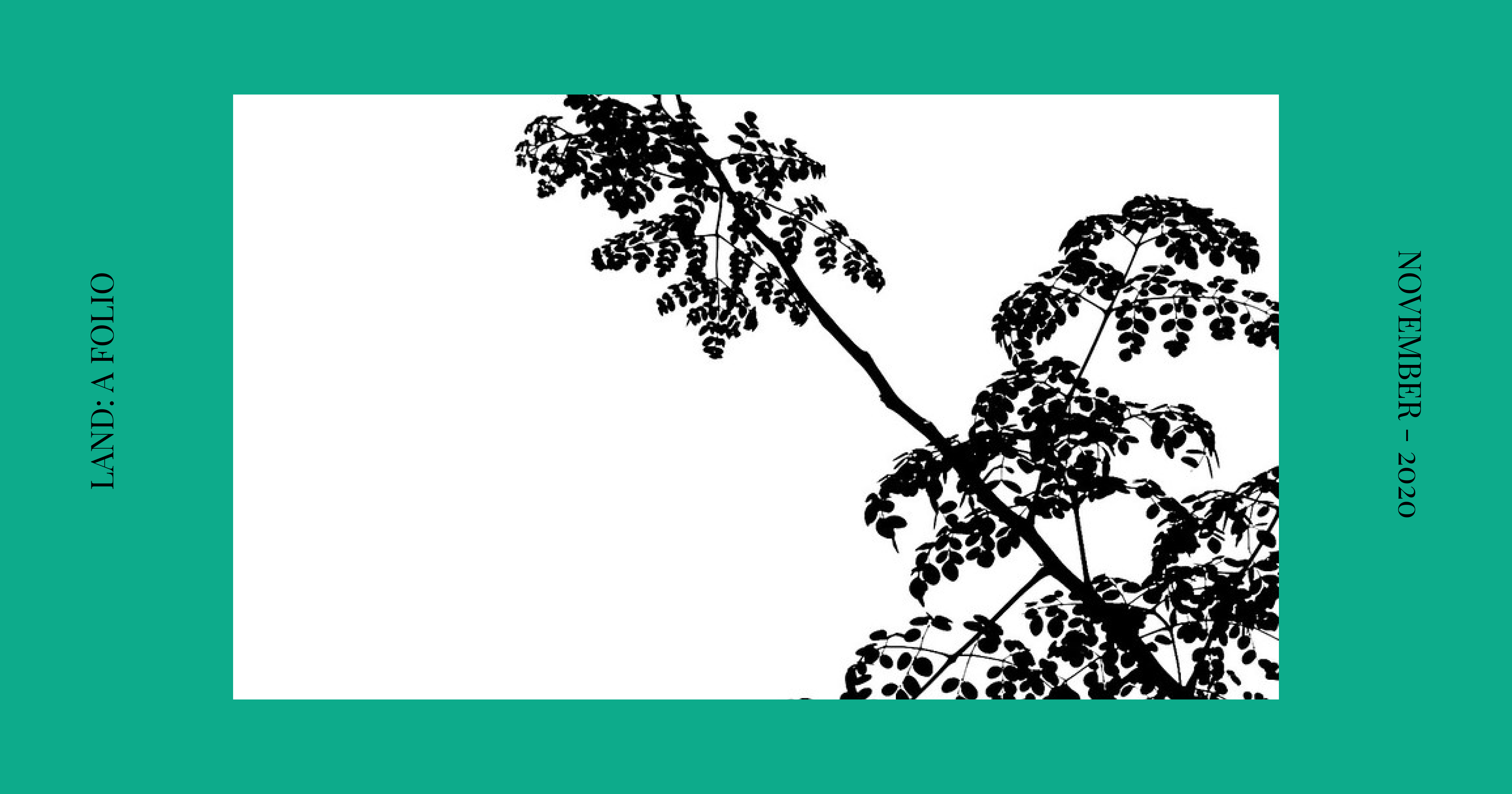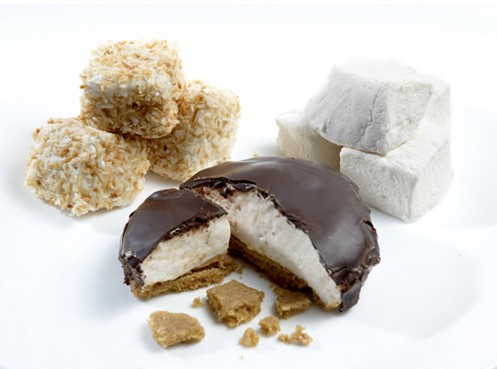Far from our barrios, mountains, and islands, we cook, so that we may practice swallowing our undesirable truths, acidic and blood-heavy.

November 11, 2020
Tinola
(Ginger-Chicken Soup)
Serves 4
1 kg skin-on, bone-in chicken thighs
Optional: chicken feet, neck, heart, liver, gizzard
1 sayote, peeled, seeded, cubed
1 cup malunggay leaves
5 garlic cloves, smashed
3 x 5 cm pieces peeled ginger, sliced into matchsticks
1 red onion, diced
8 cups unsalted chicken stock
Patis to season
Tinola is humble. It does not capture foodie attention through its looks, which are pale and watery, or its scent, which is gingery boiled chicken, or its flavor, which does not bloom, soft and gentle on the tongue, until the second mouthful.
When I was little, before I departed the sunny, Pacific chaos of our world for the chilly, Atlantic silence of the new world, we often had tinola for Sunday lunch at Lolo and Lola’s house, where I would spend weekends. In the early mornings, Lolo and I would stroll the barrio streets to buy fresh pandesal from the local bakery, me skipping along in mumbled song with the roosters, him punching the air with calisthenic fists, just as he had done with the American GIs during the war. In Pennsylvania, where he had followed us a year after we left, he would walk me to and from school, the two of us passing a bag of sticky, sour sampalok between us, spitting out the smooth, shiny seeds into our palms. He always wore his pristinely white Reeboks and sometimes his ten-gallon cowboy hat. I still remember my shame on the days he would arrive in that hat.
It was during those early years in the land of the free and the home of the brave that I first felt shame, which is a hunger for pride, and loneliness, which is a hunger for belonging. Tinola’s plain, clear-brothed, ginger-laced embrace helped to sate these hungers, my tongue swallowing the taste of home soil.
Sauté the garlic, ginger, and onion in oil in a large pot, stirring until soft.
Lola Rosing kept a malunggay tree in her front yard, bushy and narrow, fed by the morning Manila sun. Whenever she made tinola, she had me pick fresh from the tree, reminding me to choose only the sweet young branches. Malunggay is a lot of work: its fronds are galaxies of individual leaves shooting out from the parent branch and into eternity. In the dirty kitchen—where the real cooking happens in Filipino houses—we plucked leaves until she was satisfied with the size of the dark green pile. With a wordless smile, she gave me permission to play outside.
Once, on a hot afternoon, I ran into their house, yowling from a bicycle-riding scrape. Lola pulled a handful of leaves from her tree, spat into her mortar. Crushing the malunggay with her pestle, she daubed the paste to my knee. The bleeding slowed. Sometimes, I would see her sipping from a cup of hot water and malunggay leaves, and I would know that her head ached. When I was born, I was ill-prepared for this plane: my limbs were frail, my cries long and hollow. Lola made bowls of malunggay soup for my mother, who drank heartily. Mama’s pale, small breasts would swell soon after, and she would feed me, the malunggay-infused milk strengthening my soft infant bones.
Yet for all of her care and industriousness, Lola remained unreachable. Her heavy-lidded eyes seemed to flit between planes, her vision never quite settling here on Pugao, our Earthworld. My grandmother’s thoughts were always elsewhere, perhaps in Kabunian, the Skyworld from which we descend, or in Dalom, the underworld where her younger siblings and her two lost babies waited. Still, her presence, quiet and warm, filled the house on Aranga Street. She would wrap her mother in blankets, wash my grandfather’s clothes, and feed me while I played on my father’s neglected old piano, gone off-key over time. For most of her life, Lola kept her words inside herself, freeing them only after Lolo’s death. And when she died, her malunggay tree died not long after.
Lay the chicken thighs atop the frying garlic, ginger, and onion.
That tree stood taller than any of Lola’s eight sons, six of whom grew to become men. One of them was my father, born between two brothers who left this plane before childhood. This abandonment has set him apart. His days are spent in solitude, half a world away from his five living brothers, oceans apart from his two daughters. Fearful and arrogant, we deny him our gratitude and forgiveness so that we may blame him not only for his mistakes, but ours too.
Papa is separated even from his dreams. He has left them behind on the cruise ship that brought him to America. He has traveled through time and terrain, his indigenous flesh and blood carrying our ancestors’ resistance to the streets of 1970s Manila, protesting the martial law rule of Marcos, The Great American Puppet. He has traveled through hemispheres and oceans, one hand reaching back for his wife and children, the other reaching forward for his ivory-keyed harmonies. In giving us our own dreams while setting aside his own, Papa has come a long way from his mountain boyhood in Tadian.
The mountain way of life was brought down from Skyworld by the gods. They playfully sculpted the green Cordilleran peaks––taller than the Appalachians––and the rushing brown Chico River below, curious to see what would happen if they did this to one part of the earth, or that to another. Through our mama-o and our mumbaki, the gods taught us how to use the earth’s gifts and replenish them in return. My father’s grandmothers used plants like malunggay as medicine, easing discomfort in the belly, expanding the intake of breath, thickening the flow of blood.
Add the neck, feet, heart, liver, and gizzards, if desired.
My father’s grandmothers would be dismayed to find that these gifts are now exploited by elected leaders against our indigenous peoples’ will. So that they may strip our proud mountains of their belts of gold, minerals, and copper, families are forced from ancestral villages and lands, selling the very currents of the Chico River and the roots of every tree to the highest multinational bidder. Our malunggay trees, sustenance for generations, are now profitable exports. Its fronds and leaves are pulverized, sold as powders, marketed by wellness influencers, blended into smoothies, swallowed as capsules. And when muddy landslides rush down from our stripped mountains during typhoon season, not a limb, house, or village is left unpunished by the gods. To escape their wrath, our people flee to Baguio, or to Manila, or to the air-bridged harbor, with its lifted lamp beside the golden door.
Pour the chicken stock over the meat and offal and bring to a soft boil, reducing to a gentle simmer for three-quarters of an hour.
In 1990s suburban America, malunggay was impossible to find. Mama substituted in any way she could, using spinach or bok choy, depending on what was on sale at the supermarket that week. When she managed to buy pepper leaves from the local Asian store, it was my responsibility to dig out the rock-hard pack from the freezer, defrosting it in a bowl of warm water next to the kitchen sink while I did my homework. I wrote essays about Columbus, Pizarro, and Cortez, and their claims to land that was never theirs. I forgot where I was born.
Sayote was a gift from our Nahuatl-speaking siblings, brought over during our shared colonization. It is a rarity north of their native territories, in the place now known as the United States. Sayote’s translucent flesh gives tinola a slightly resistant bite, a moment of verdant sweetness against the gentle salt of the patis-seasoned broth. We missed its presence in our cobbled-together pots of migrant American tinola, smacking our lips between hot mouthfuls, pretending that Florida papaya was equal to Benguet sayote.
Simmer the sayote for ten minutes, until tender and translucent.
Ginger, domesticated by our Austronesian ancestors, was easier to find in the new world, brought west by the trade ships of the Chinese, who, long before Mao and his successors, traded with our islands, lived with us, fought with us, and married us. Their children––our children––were folded into the Spaniards’ caste system, ranked below white skin, but above brown and black. As a child, I diligently scooped out the matchstick-sliced pieces from my tinola soup, laying them carefully on the far edge of my plate lest they contaminate everything else. As an adult, I slice ginger, sharpened steel against bare hands, and bend down to inhale its keen sweetness. It has taken me all of my thirty-seven years to appreciate ginger.
Chicken hearts, gizzards, livers, a neck, and a pair or two of feet: these unwanted parts give the broth layered depths of flavor. Lola’s tinola stayed true to its unconquered northern mountain ways, just as our I-pugao, Bontoc, and Benguet nations did until the last century. The chicken feet were reserved just for my Lolo Pedring. He would methodically pick out each rubbery, beige claw from the soup, gnawing off the pebbly, cartilaged flesh with toothy relish.
“Here, have one,” he would say to me with a grin, waving a chicken foot in the air, knowing how much I hated them. “It’s good for your arthritis.”
Let the flesh begin to fall off the bone.
I remember this now and wish that Lolo had eaten more chicken feet then: dozens, hundreds, thousands at each meal, for his rheumatoid arthritis tormented him to his last day. A condition borne of capitulation, the deep ache in his veteran bones radiated from the fractured World War II promises of Dwight Eisenhower and his Rescission Act, for when citizenship and freedom is denied, so too are the body’s movements, which become stiff with agony and longing.
I wish we had more time together on this plane. The night he left Earthworld, Lolo visited me for one final spirit walk. On that walk, it was a warm afternoon in Manila, the rain flattening the fallen autumn leaves into slippery brown tissue. I should have seen that the leaves were out of place, but I was twenty-one and hadn’t seen him for nearly ten years. I should have seen his agelessness, his hair as pitch-black and his face as Gregory Peck handsome as it was when I was a child. We strolled the grounds where he would be buried, stepping in time, side by side, my bare feet finding purchase on slick leaves, Lolo’s white Reeboks untouched by the rain, which I did not feel on my skin. What I did feel was his understanding: of my failures, of distance, and of the inevitability of time.
We reached the end of the path. He turned to face me, placed his hands on my shoulders, and gave them a gentle squeeze.
“Do not be afraid,” he said. “It is in you.”
Turning his back to me, Lolo Pedring stepped onto the grass, where I was not ready to follow, and walked away, his pain gone, and vanished into fog. And at that moment, as my body slept in suburban New Jersey, my grandfather’s body, oceans away, curled in agony, hemorrhaging itself to death.
The leaves come last. Let soften for two minutes above a low flame.
I cook tinola now and close my eyes while I stir in the malunggay, brought to me across oceans by the same multinational forces that steal from our islands. Behind my eyelids, I can still see Lola Rosing’s knurled fingers plucking the leaves from each stem. Ladling a clear slosh of tinola soup into my husband’s bowl, I breathe in and open my lungs to the steamed air of those hot Manila afternoon lunches, seated at my Lolo Pedring’s right hand. I sweep a mound of tender chicken and fluffy rice onto my tongue and think about where I might order fresh chicken necks, hearts, gizzards, livers, and feet on the Iinternet.
Pour the broth into bowls. Serve the chicken, sayote, and malunggay atop steamed white rice. Keep patis on the side.
I wonder what my children—the ones I may never have—would think of this dish. I imagine their father’s Yorkshire puddings floating like ships atop their bowls of tinola soup, their plates ringed with green sayote and yellow ginger pushed to the edges, just as their mother once did. I sip a curled tongueful of hot soup, slurping in air to fan the roof of my mouth, and imagine dinner guests from other planes. I swallow the tear-salted lump in my throat and scrape my plate clean.
Sisig
(Pork Cooked Three Ways)
Serves 4
1 kg pork belly
120 g pig’s ears
120 g pig’s snout
120 g chicken liver, diced
4 eggs
5 bay leaves
1 tbsp black peppercorns
1 red onion, diced
6 bird’s eye chilies, diced
10 garlic cloves, minced
60 ml sugarcane vinegar
2 tbsp calamansi juice
Sea salt and ground black pepper
Green mango, garlic, salt, chillies, vinegar: sisig in its original form was meatless, vegetal, raw. It comes from my mother’s people, the Kapampangan. Descended from Indonesian tribes, they settled in our central lowlands alongside our true aborigines, the umber-skinned Aeta. Warring gods shaped their islands at battle, an ongoing standoff between seething volcanoes and the raging sea. Born on lava-fertile soil, the Kapampangans knew life-giving destruction, whether it came from the gods or from bible-bearing missionaries. In the name of their lonesome god, the Christians stole our soft, handwoven silks in exchange for their rough slave cotton.
Dice the pork belly into 1 cm cubes.
Sisig is a reminder. It reminds you, as it sizzles in its cast-iron pan, of transformation brought only by fire. It reminds you, as your teeth gnash on the crispy, chewy, and tender pig flesh, of all that it is made of. It reminds you, as its citrus-sour, chillied heat endures on your tongue, of how to swallow undesirable truths.
With vegetable oil, fry until golden-brown in a large skillet. Set aside on a large plate.
My mother’s people were blessed by their gods, who breathed fire, bled lava and nourished the land; in return, they required a sacrificial offering with every moon. They gave us sisig, a cure for acute imbalances: a hangover, a bad stomach, a shipful of uninvited conquistadores. And as the collective stomachache of colonization took hold, sisig underwent its own holy transfiguration, going from occasional remedy to a daily part of the Jesus-blessed family meal. With scooped fingers and a thumb, elbow resting on a raised knee, Kapampangans would gather a pat of rice, some meat, and a green hunk of sisig, the chili-hot, acidic corrosion hardening their stomachs, balancing the bitterness blooming, silent, in their blood.
Mama’s favorite snack descends from that native cure: green mangoes, puckery vinegar, salty patis. It is mine also, a bracing tonic while growing up in the sugary cornucopia of America, while settling into the clotted cream of England.
Wipe the skillet clean. In oil over a medium flame, add the minced garlic, most of the diced red onion, and most of the diced bird’s eye chillies.
I was twenty-eight when I first ate pork sisig in America. It was at Maharlika, in the East Village. The meal was my way of celebrating, for life had begun just four years before. I had arrived in Manhattan on a late night bus from New Jersey with just a half-packed duffle bag to see me through the coming winter. I found shelter at a place built for women who suffer at the hands of men (who themselves suffer at the hands of other men). I put cream on my scarred face, gauze on my elbows and knees, and a name that was not mine on the shelter’s sign-in book—one of the few small blessings that came with having no papers. My back ached for weeks in the spot where it was kicked, but I could stand straight and walk after some time.
Stir often, cooking until soft. Let the raw smell dissipate.
New York is the kind of place where you can start out answering phones at reception, and eventually, your uneducated, undocumented, unmathematical self could end up crunching numbers on Wall Street. No amount of performance bonuses can ever buy citizenship (not even taxes, diligently paid), but nevermind. I could finally afford to eat.
The diced pig’s livers are next. Stir often for three to four minutes, until cooked through and creamy.
At that table for one, I ordered a cast-iron plate of sizzling sisig, garlic sinangag on the side. I had instinctively summoned what my ancestors––what our gods––required, for we celebrate, mourn, and pay tribute with pig flesh. As I ate, I watched myself with eyes from our ancestor realm. I saw that there would be more pilgrimages, more adaptations.
Sisig, too, has adapted itself. It no longer balances or heals. It is now a lure. Temptation. Bait. White men with camera crews––Anthony Bourdain, Andrew Zimmern, the Duchess of Cornwall’s foodie son––would descend upon Jackson Heights, Queens, or Aling Lusing’s in Pampanga, declaring our sisig to be the next hot thing for foodies everywhere, finding yet another way to sell what does not belong to them.
Diced pork ears, snout, and belly are next. Stirring continuously, pour in the vinegar and calamansi juice. Remove from heat.
“I think sisig is perfectly positioned to win the hearts and minds of the world as a whole,” Bourdain once said. At his word, #foodies and #travelers with their colonizing #wanderlust bought tickets and packed their bags. Filipinos cheered at this anointment from the white man, but I know that our ever-watchful gods, nursing centuries of grievances, have more vengeful ideas.
“You have too much sisig, you die,” my Tito Arnold once told me. It will fill your veins, weigh down your blood, stop your heart. We once thanked the gods through sacrificial slaughter, but now, pigs are for pulutan, swallowed into early dawn by sweating titos in sando shirts. They wash it down with beer and Frank Sinatra karaoke, mourning for all that we could have been. Watching from above, our gods mourn, also.
Heat two tablespoons of oil in a cast-iron pan until very hot. Let the oil smoke slightly.
It is fitting that sisig first transformed itself into poison at an American air base on Kapampangan soil. It was in the time of Marcos, long after the Americans had subdued our islands. The sunburnt GIs settled into Angeles City with their guns, their music, and their appetites, which included young women and girls, but did not include pig trotters, snouts, or ears.
Wasting not, always wanting, the Clark Air Base cooks––local Kapampangans––took home these rejected parts, the ones without which the pig could not have heard, smelled or walked. They stirred these undesirables into medicinal bowls of sour green mango, forcing spoonfuls into their mouths, swallowing with chili-spiced difficulty. Perhaps they believed that by eating from the same pig as our new occupiers, they could transfigure themselves to walk, look, and talk the American way.
It did not take long for sisig to be made of only pig flesh, cooked three different ways, as if to convince itself that it is worth eating. The sour vegetable sisig of the gods, bestowed upon us as a gift, was soon forgotten. How this must have angered the gods on Arayat and Pinatubo, watching the Americans feast on pork bellies and tenderloins while we chewed discarded gristle and sinew. Such sacrifices were not meant to be turned into pork chop dinners, or bacon breakfasts, or sausage picnics.
With care, spread the pork sisig evenly around the pan.
The gods’ vengeance soon manifested, their interests aligning with those of Marcos. Just after the Second Colonizers’ War, our islands, with its resources, infrastructures, and educated people, had burgeoned with more wealth and economic potential than Japan. Not long into his dictatorship, Marcos, with the World Bank and the IMF, inflicted indebted suffering upon our islands. Jobs became meager, the economy shrank into an indentured shell. Along with other Kapampangans, my grandparents, my mother, and her siblings soon found themselves struggling in Manila. They worked odd jobs, living under a lean-to propped against my grandfather’s brother’s house, their six unwanted bodies crammed against each other.
“We would look in through the window to watch TV,” Mama once told me. “Sometimes, they’d close the curtains.”
As the pork sisig sizzles in the hot pan, crack the eggs on top.
Tito Arnold, my mother’s oldest brother, would have closed his eyes to this memory while scrubbing ship decks at the feet of British officers and German engineers. That memory would have been both a hex and a talisman, seeing him through those lonely years at sea. Like many from our islands, he was cast out by hunger and necessity, his economic exile signed into law by Marcos’s final clutch at power. We had been abandoned by our gods, for we had been forced––by the tip of a pen, at the end of a gun––to abandon them.
With his hard-earned overseas money, Tito Arnold built a house for his mother and father. He furnished this house so that they could watch television and eat inside. He married the woman of his sea-locked dreams, who kept all of his letters and waited for him, and they had three children. He gave his dreams to my mother so that she could attend university. And then he built a restaurant in Quezon City, an elbow-to-elbow space all his own. He made his beloved dish in all of its crispy, spicy-sour, fatty Kapampangan splendor, the charred smell of grilled pork and the ghosts of Angeles City saturating the hazy air. He asked my father and his band to play, their songs mingling with smoke and memory.
Garnish with the reserved onion and chillies.
“You want to know why my sisig is special?” Tito asked me recently over a sizzling plate. We were sharing a meal next to the volcano, Taal. I had just returned to the islands after twenty-two years of undocumented American exile.
“Because I make it with pork belly. Usually it’s made with the cheap parts of the pig, ha. Why should we eat only cheap parts? And love. I cook it with love.”
Sisig is no longer made with just the discarded cuts, but its poisonous effects remain. The Americans are gone, but their imperious scars linger. No longer trapped by our colonizers, we trap ourselves. We transform to survive, but we still bear the boiled, charred, gristled remnants of our past. I will continue to exist in a hungry space between longing and belonging, for my body, exported from its country of birth, deported from its country of growth, now has only sense and memory to call home.
Serve immediately, using two large spoons to stir in the eggs to cook. Enjoy with garlic fried rice.
Far from our barrios, mountains, and islands, we cook, so that we may practice swallowing our undesirable truths, acidic and blood-heavy. Sisig, like our islands, is cooked three ways, and we––descended from gods, made in dirty kitchens––must learn to master each one.



